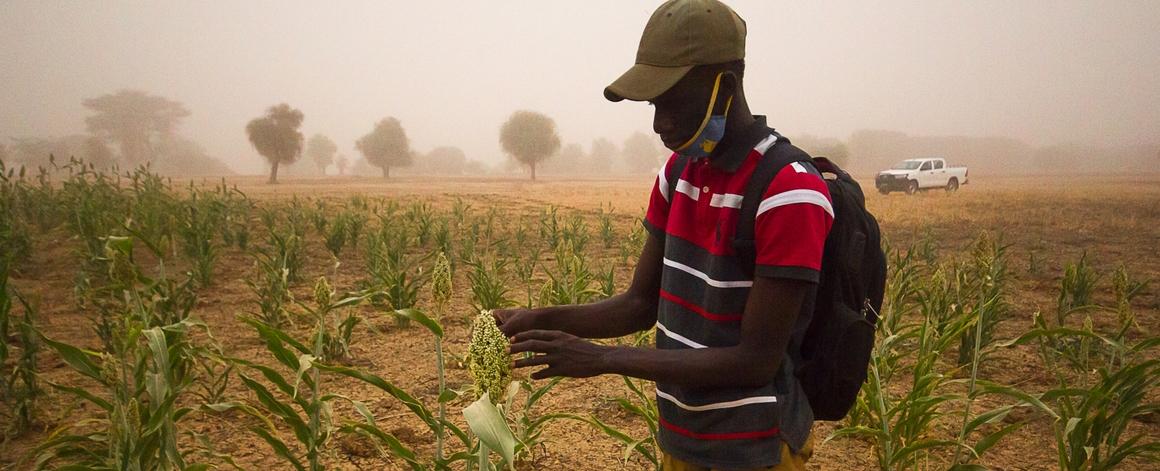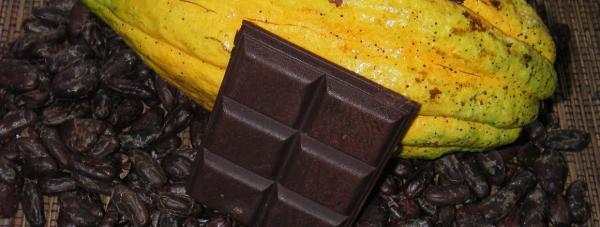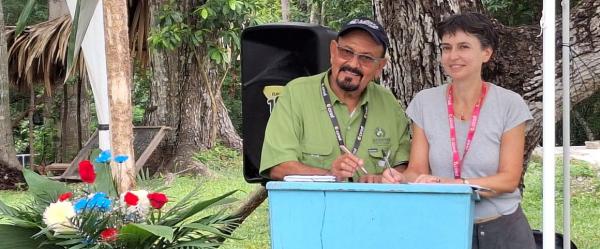Science at work 16 December 2025
- Home
- Press area
- Press releases
- Soil restoration in Côte d'Ivoire
Terri4Sol: working for sustainable organic carbon management in Ivorian soils

The FAO estimates that if nothing is done to stop the desertification process, Africa will lose two-thirds of its arable land by 2030 © R. Belmin, CIRAD
The new maxim at the Ivorian Ministry of Agriculture and Rural Development (MEMINADER) is the restoration of farmland fertility in more forested landscapes. Terri4Sol has been launched to contribute to that goal. Over four years, the project will be helping MEMINADER implement a strategy to sustainably manage organic carbon in soils, in line with the 4 per 1000 initiative.
As stated by Drissa Traoré, the project’s focal point at MEMINADER and technical advisor to the Directorate General for Production and Food Security “The aim is to construct the agriculture of tomorrow: it needs to be more resilient, adapt to changes, such as climate change, while meeting the challenges of a growing Ivorian rural population”.
Terri4Sol will thus endeavour to provide scientific input to guide MEMINADER’s public policies. “Based on these data, decision-makers will be able to envisage territorial development scenarios promoting organic carbon storage in soils, while restoring part of the country’s forest cover”, declares Drissa Traoré. In addition, practices conducive to agricultural land fertility will be assessed with the help of the local populations in three villages located a hundred kilometres or so northeast of Abidjan, in the La Mé region.
Putting a stop to deforestation-based agricultural development
To date, agricultural development in Ivory Coast has relied on cultivating the soils of dense rainforests in the southern half of the country. “Indeed, after deforestation these lands are rich in organic matter, with a good water-holding capacity, and benefit from a microclimate suited to crops”, explains Bruno Hérault, a tropical forest specialist at CIRAD and project coordinator. But those good conditions only last a while. After a few years, fertility declines, while massive deforestation greatly alters the local climate. Farmers then turn to chemical inputs if they do not clear new plots. “Today, this shifting cultivation system is no longer sustainable or viable, due to the growing population and disappearing forests”. Indeed, 90% of the original Ivorian forest cover has disappeared and most of the forests still in existence are extremely degraded.
Preserving the forest and limiting chemical fertilizers
If the remaining forest cover is to be preserved and chemical inputs limited, it is essential to improve soil fertility using more eco-friendly methods. For instance, it means maintaining the soil cover, recycling organic agricultural waste, or even developing agroforestry, which can also help to reforest the country.
Bruno Hérault adds “Nitidæ, an NGO already involved locally in a project to control deforestation and forest degradation, has been called upon to introduce these practices in the La Mé region”. The lessons learned from this pilot project can then be applied to other regions in southern Ivory Coast. For Aurélie Ahmim-Richard, head of Forestry and Agriculture issues at FFEM “The novelty of the project lies in its multi-scalar approach that seeks to launch dynamics for change on a national, regional and local scale, thereby contributing to a sustainable transition of agricultural and forest territories in Ivory Coast”.
In addition, the soil sequestration potential of these regions will be mapped in liaison with the Institut national polytechnique Félix Houphouët-Boigny and Nangui Abrogoua University, to identify zones best suited to benefit from these sustainable practices. Fixing carbon in soils will thus enable the country to continue growing the crops essential for its economy, in a more sustainable manner, while combating global warming.
The dual ambition of the 4 per 1000 initiative launched by the French government on 1 December 2015 at COP 21, is to combat global warming and ensure food security for the world’s population. How? By annually increasing the carbon stocks of agricultural and forest soils by 0.4%, i.e. 4 per thousand. Indeed, many sustainable practices have proved that they facilitate atmospheric carbon storage in agricultural lands, with two main benefits for our societies: enhanced soil fertility and a drop in CO2 concentration in the atmosphere.
The annual event of the initiative will take place on 10 November, in-person in Glasgow and online.
Find out more: https://4p1000day2021.sciencesconf.org/resource/page/id/3
Partners
- MEMINADER: Ivorian Ministry of Agriculture and Rural Development
- Nitidæ
- INPHB: Institut National Polytechnique Félix Houphouët-Boigny, Yamoussoukro, Ivory Coast



























